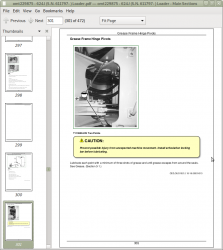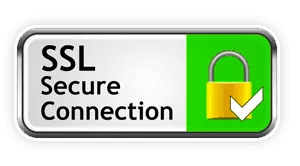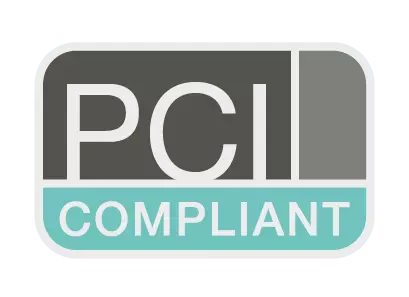John Deere Loaders 624J (S.N. 611797- ) Operators Manual (OMT229875)
Catalog:
Model:
Price: US$ 25.00
omt229875 - John Deere 624J (S.N. 611797- ) Loader Operators Manual.pdf
Complete Operators Manual for John Deere Loaders 624J (S.N. 611797- ), with all the shop information to maintain & operate.
PRODUCT DETAILS:
Total Pages: 472 pages
File Format: PDF (Internal Links, Bookmarked, Table of Contents, Searchable, Printable, high quality)
Language: English
John Deere Loaders 624J (S.N. 611797- ) Operators Manual (OMT229875)
Table of Contents
Foreword
IMPORTANT
Emission Control Warranty Statement
Technical Information Feedback Form
Section 1-1: Safety—Safety and Operator Conveniences
Safety and Operator Convenience Features
Section 1-2: Safety—General Precautions
Recognize Safety Information
Follow Safety Instructions
Operate Only If Qualified
Wear Protective Equipment
Avoid Unauthorized Machine Modifications
Add Cab Guarding For Special Uses
Inspect Machine
Stay Clear of Moving Parts
Avoid High-Pressure Fluids
Avoid High-Pressure Oils
Beware of Exhaust Fumes
Prevent Fires
Prevent Battery Explosions
Handle Chemical Products Safely
Dispose of Waste Properly
Prepare for Emergencies
Section 1-3: Safety—Operating Precautions
Use Steps and Handholds Correctly
Start Only From Operator's Seat
Use and Maintain Seat Belt
Prevent Unintended Machine Movement
Avoid Work Site Hazards
Use Special Care When Operating Loader
Keep Riders Off Machine
Avoid Backover Accidents
Avoid Machine Tip Over
Operating on Slopes
Operating or Traveling On Public Roads
Inspect and Maintain ROPS
Add and Operate Attachments Safely
Prevent Unintended Detonation of Explosive Devices
Section 1-4: Safety—Maintenance Precautions
Park And Prepare For Service Safely
Service Cooling System Safely
Remove Paint Before Welding or Heating
Make Welding Repairs Safely
Service Tires Safely
Drive Metal Pins Safely
Section 1-5: Safety—Safety Signs
Safety Signs
Section 2-1: Operation—Operator’s Station
Levers
Pedals
Monitor Panel (CMU)
Display Unit Functions
Switch Pad
Switch and Accessory Functions
Monitor Display Unit—Normal Display
Monitor Display Unit—Main Menu
Monitor Display Unit—Main Menu—Codes
Monitor Display Unit—Main Menu—Codes—Active Codes
Monitor Display Unit—Main Menu—Codes—Stored Codes
Monitor Display Unit—Main Menu—Machine Settings
Monitor Display Unit—Main Menu—Machine Settings—Quick Shift
Monitor Display Unit—Main Menu—Machine Settings—Auto to 1st
Monitor Display Unit—Main Menu—Machine Settings—Job Timer
Monitor Display Unit—Main Menu—Machine Settings—Stopwatch
Monitor Display Unit—Main Menu—Machine Settings—Ride Control—If Equipped
Monitor Display Unit—Main Menu—Diagnostics
Monitor Display Unit—Main Menu—Diagnostics—Battery Monitor
Monitor Display Unit—Main Menu—Diagnostics—Engine Sensors
Monitor Display Unit—Main Menu—Diagnostics—Transmission
Monitor Display Unit—Main Menu—Diagnostics—Hydraulic
Monitor Display Unit—Main Menu—Diagnostics—Machine
Monitor Display Unit—Main Menu—Diagnostics—Machine Switches
Monitor Display Unit—Main Menu—Diagnostics—Switch Module
Monitor Display Unit—Main Menu—Diagnostics—Machine I.D.
Monitor Display Unit—Main Menu—Diagnostics—More Diagnostics
Monitor Display Unit—Main Menu—Monitor Settings
Monitor Display Unit—Main Menu—Monitor Settings—Units
Monitor Display Unit—Main Menu—Monitor Settings—Backlighting
Monitor Display Unit—Main Menu—Monitor Settings—LCD Contrast
Monitor Display Unit—Main Menu—Monitor Settings—Hide Main Menu
Horn Button
Turn Signals
Adjusting Steering Wheel Tilt
Air Conditioning Controls and Heater Operation
Opening and Securing Side Door
Opening Side Window/Secondary Exit
Opening Rear Side Window
Adjusting Seat
Section 2-2: Operation—Operating the Machine
Inspect Machine Daily Before Starting
Check Instruments Before Starting
Starting the Engine
Starting Fluid—If Equipped (Cold Weather Starting Aid)
Engine Heater—If Equipped
Using Coolant Heater—If Equipped
Warm-Up
Minimizing the Effect of Cold Weather on Diesel Engines
Cold Weather Warm-Up
Neutral Lock
Shifting the Transmission
Park Brake Switch
Boom and Bucket Control Lever—One Lever Design
Boom and Bucket Control Lever—Two Lever Design
Quick Shift Switch
Ride Control—If Equipped
Secondary Steering—If Equipped
Differential Lock Switch
Boom Height Kickout Adjustment
Return-to-Carry Kickout Adjustment
Return-To-Dig Adjustment for Z-Bar Linkage Only
Return-To-Dig Adjustment—If Equipped With Powerllel Linkage
Using the Loader Bucket
Backdragging
Fork Attachment
Arm Attachment
Parking the Machine
Loading Machine on a Trailer
Towing Procedure
Lifting the Machine
Section 3-1: Maintenance—Machine
Diesel Fuel
Bio-Diesel Fuel
Low Sulfur Diesel Fuel Conditioner
Testing Diesel Fuel
Handling and Storing Diesel Fuel
Alternative and Synthetic Lubricants
Diesel Engine Break-In Oil
Diesel Engine Oil
Diesel Engine Oil and Filter Service Intervals
Transmission, Park Brake, and Axle Oil
Hydraulic Reservoir Oil
Grease
Heavy Duty Diesel Engine Coolant
Section 3-2: Maintenance—Periodic Maintenance
Service Machine at Specified Intervals
Check Hour Meter Regularly
Prepare Machine for Maintenance
Locking Machine Frame
Boom Lock
Pin Removal—If Equipped With Powerllel™ Linkage
Opening Engine Service Doors and Side Shields
Opening Grille Door
Fuel Tank
Maintenance and Repair Record Keeping System
Fluid Analysis Program Test Kits and 3-Way Coolant Test Kit
Service Intervals
Required Parts
Section 3-3: Maintenance—As Required
Inspect Tires and Check Pressure
Tire Pressures
Check Wheel Bolt Torque
Clean or Replace Air Cleaner Elements
Inspect A/C Compressor and Alternator Belt
Check Windshield Washer Fluid Level
Drain Water From Primary Fuel Filter and Clean Strainer
Replace Final Fuel Filter
Check Cab Fresh Air Filter—If Equipped With Cab
Check Cab Recirculating Air Filter—If Equipped With Cab
Section 3-4: Maintenance—Every 10 Hours or Daily
Check Coolant Level in Surge Tank
Clean Air Cleaner Dust Unloader Valve
Check Engine Oil Level
Check Hydraulic Oil Level
Check Transmission Oil Level
Section 3-5: Maintenance—Every 100 Hours
Grease Loader Linkage and Cylinder Pivots—If Equipped
Grease Front Steering Cylinder Pivots (S.N.—618133)
Grease Rear Steering Cylinder Pivots (S.N.—618133)
Grease Oscillating Rear Axle Pivots
Section 3-6: Maintenance—Initial Service - 250 Hours
Change Engine Oil and Replace Filter
Change Front and Rear Axle Oil
Section 3-7: Maintenance—Every 250 Hours
Take Engine Oil Sample
Take Hydraulic Oil Sample
Section 3-8: Maintenance—Every 500 Hours
Grease Upper and Lower Driveline Sliding Joints
Check Air Intake and Charged Air Cooler Hoses
Check Battery Electrolyte Level and Terminals
Change Engine Oil and Replace Filter
Replace Primary and Final Fuel Filter
Replace In-Line Fuel Strainer
Replace Hydraulic System Return Filter
Replace Hydraulic Reservoir Breather Filter
Check Park Brake Oil Level
Check Front and Rear Axle Oil Level
Take Diesel Fuel Sample
Take Engine Coolant Sample
Take Transmission Oil Sample
Take Axle Oil Sample
Section 3-9: Maintenance—Every 1000 Hours
Clean Engine Crankcase Vent Tube
Replace Air Cleaner Dust Unloader Valve
Replace Air Cleaner Elements
Check Coolant
Check Radiator Hoses
Replace Transmission Oil Filter
Inspect and Clean Hydraulic Pump Case Drain Fittings
Grease Frame Hinge Pivots
Change Park Brake Oil
Section 3-10: Maintenance—Every 2000 Hours
Change Transmission Oil
Change Front and Rear Axle Oil
Clean Axle Oil Recirculation Screen—If Equipped
Grease Front and Rear Axle Input Seals
Adjust Engine Valve Lash (Clearance)
Rerun Clutch Calibration
Section 3-11: Maintenance—Every 4000 Hours
Change Hydraulic System Oil
Clean Hydraulic System Strainer
Section 3-13: Maintenance—Every 5000 Hours
Draining the Cooling System
Filling the Cooling System
Replace Crankshaft Dampener
Inspect Output Dampener
Section 4-1: Miscellaneous—Machine
Check Air Inlet Cover
Inspect Fuel Tank Vent Hose and Breather
Bleeding Fuel System
Checking Fire Extinguisher—If Equipped
Precautions for Alternator and Regulator
Handling Batteries Safely
Using Booster Batteries—24-Volt System
Using Battery Charger
Battery Disconnect Switch
Replacing Batteries
Removing and Installing Batteries
JDLink™ Machine Monitoring System (MMS)—If Equipped
JDLink™ Machine Monitoring System (MMS) Direct Laptop Connection—If Equipped
Replacing Fuses
Fuse (Blade-Type) Color Codes
Replacing Halogen Bulbs
Engine Speeds
Location of Fluid Sampling Test Ports
Checking Neutral Start System
Servicing Air Conditioning System—If Equipped
Welding on Machine
External Service Brake Inspection
Checking Brake Accumulators
Checking Ride Control Accumulator—If Equipped
Transmission Oil Cooler, Hydraulic Oil Cooler, Air-to-Air Aftercooler, and Radiator External Cleaning Procedure
Service Recommendations For Snap-To-Connect (STC®) Fittings
Do Not Service Control Valves, Cylinders, Pumps or Motors
Hardware Torque Specifications
Keep ROPS Installed Properly
Metric Bolt and Screw Torque Values
Unified Inch Bolt and Screw Torque Values
Section 4-2: Miscellaneous—Operational Checkout
Operational Checkout
Section 4-3: Miscellaneous—Troubleshooting
Troubleshooting Procedure
Engine
Transmission
Differential And Axle
Service Brake
Drive Line
Park Brake
Hydraulic System
Steering
Air Conditioning System
Heater System
Section 4-4: Miscellaneous—Storage
Prepare Machine For Storage
Monthly Storage Procedure
Section 4-5: Miscellaneous—Machine Numbers
Record Product Identification Number (PIN)
Record Engine Serial Number
Record Transmission Serial Number
Record Hydraulic Pump Serial Number
Record Axle Serial Number
Keep Machines Secure
Keep Proof of Ownership
Section 4-6: Miscellaneous—Specifications
Specifications
High Lift Specifications
Powerllel Specifications
Drain and Refill Capacities







